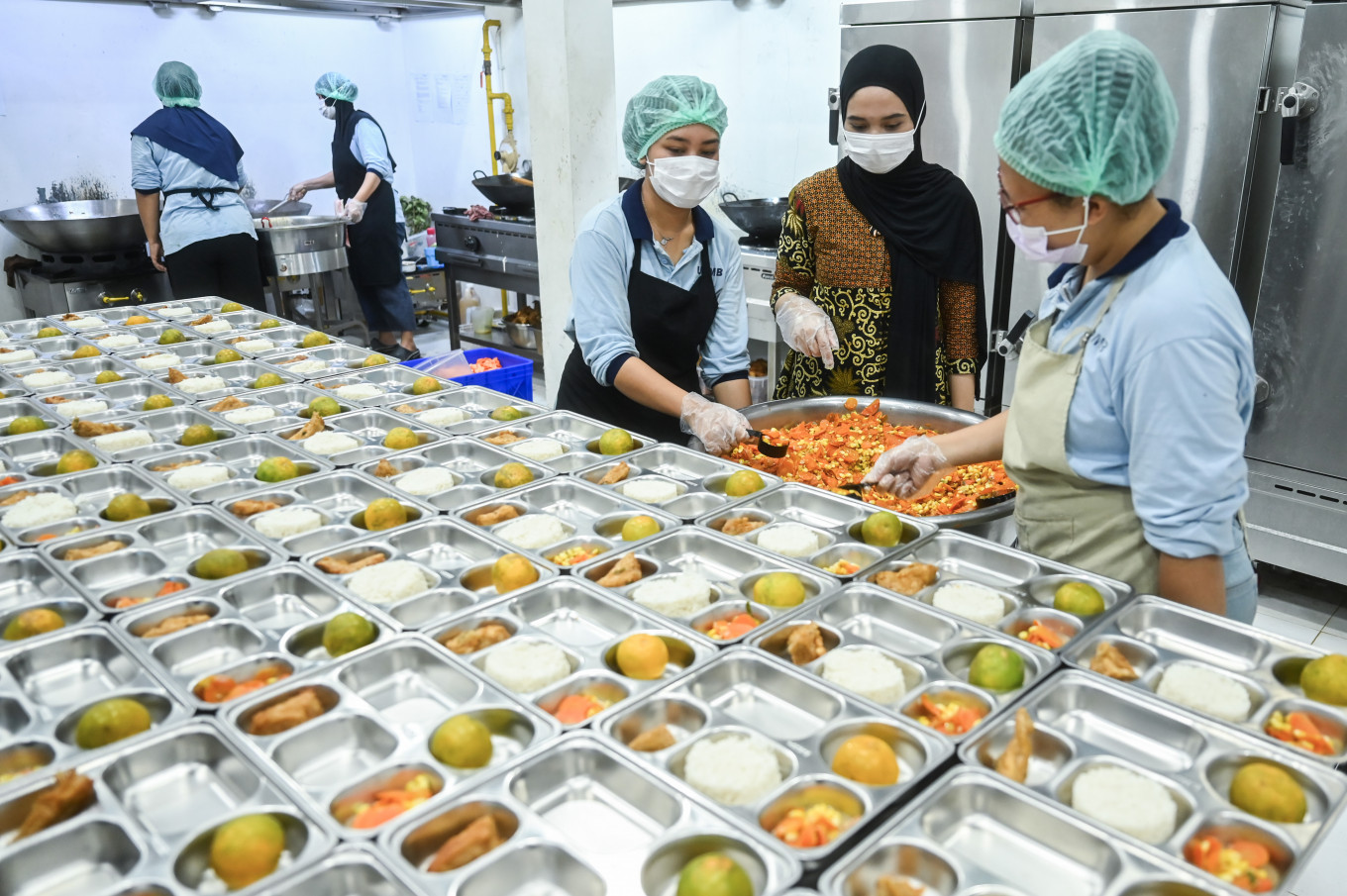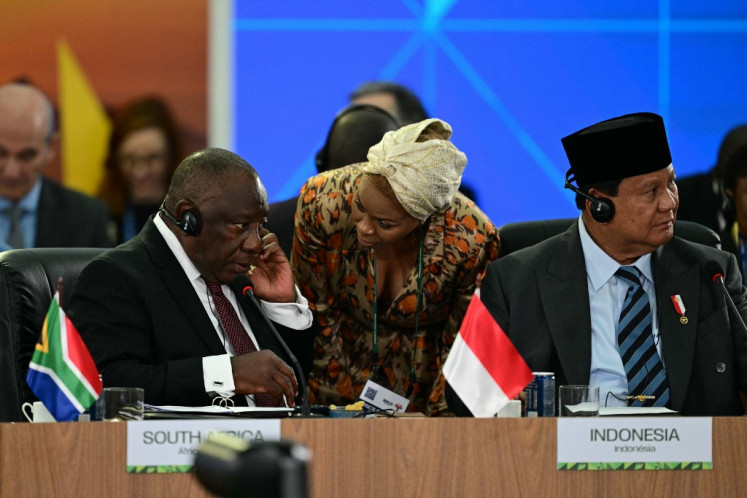Popular Reads
Top Results
Can't find what you're looking for?
View all search resultsPopular Reads
Top Results
Can't find what you're looking for?
View all search resultsFixing the free meals program
The month-long school holiday is the perfect time for the government to evaluate what is not working with the free nutritious meal program.
Change text size
Gift Premium Articles
to Anyone
S
ix months have passed since President Prabowo Subianto's flagship free nutritious meal program began distributing lunches to schoolchildren, aiming to tackle child malnutrition and stunting while boosting educational achievements. Yet, until now, the program has received attention for its shortcomings.
There have been reports of children and teachers getting sick after consuming meals under the initiative. Ten kindergartners suffered vomiting and diarrhea in Kulon Progo regency, Yogyakarta, after consuming free meals on June 18 were just the tip of the iceberg, formed by at least 1,300 students and even teachers who fell ill from food poisoning caused by the program's food.
The free meals initiative has also been marred by reports of private kitchens and their workers not being paid for their contributions. In April, a kitchen in Kalibata, South Jakarta, halted operations, claiming that it was not paid in full.
The National Nutrition Agency (BGN), which the President has entrusted with spearheading the program nationwide, has repeatedly claimed it is working to mitigate all hiccups that have surfaced in the past six months, including by improving food safety monitoring and creating better payment systems for kitchens and workers.
As students are out of school for break, there is an opportunity for the government to sit down and evaluate what is wrong with the free meals program. An assessment is necessary to ensure that the taxpayer money being poured into the program does not go down the drain. The free meals initiative costs the state Rp 71 trillion (US$4.4 billion), with the government considering increasing the budget to Rp 121 trillion to reach more beneficiaries by the end of this year.
Authorities opened the school holiday season by insisting on distributing free meals in the form of raw ingredients and ultra-processed food materials, as observed in schools in various regions, including South Tangerang, Banten. The kitchens argued that uncooked and ultra-processed food can be taken home and stored longer.
After initially denying having authorized such initiatives, the BGN recently announced that the free meals program will continue throughout the school holidays, with more than 1,800 kitchens across the country working to distribute ready-to-eat and packaged food to students.
Schoolchildren will now need to come to school during their holiday breaks just to receive meals consisting of bread, eggs, milk and fruits. Questions have been raised about whether this distribution during school breaks will be effective, with concerns surfacing that it will lead to piles of wasted food.
Rather than insisting on giving schoolchildren free meals during their holidays, the government could alternatively focus on pregnant women, breastfeeding mothers and toddlers. Several studies have pointed out that programs aiming to reduce malnutrition should focus instead on these groups, rather than older children.
Some within the government even acknowledged that the program, just like other large-scale government interventions in public health and education, will always encounter challenges in its early stages. These acknowledgements are a good first step toward solving the problem, but proper evaluation is needed to fix what has not worked in the past months.
All related parties in the government should sit down and discuss the challenges before working seriously to fix them if they want to realize President Prabowo’s vision of food security and improved health among children. There are many similar programs overseas that the government can learn from.
There is no better time to review the program than now, before the students return to classrooms after their holiday later this month.











